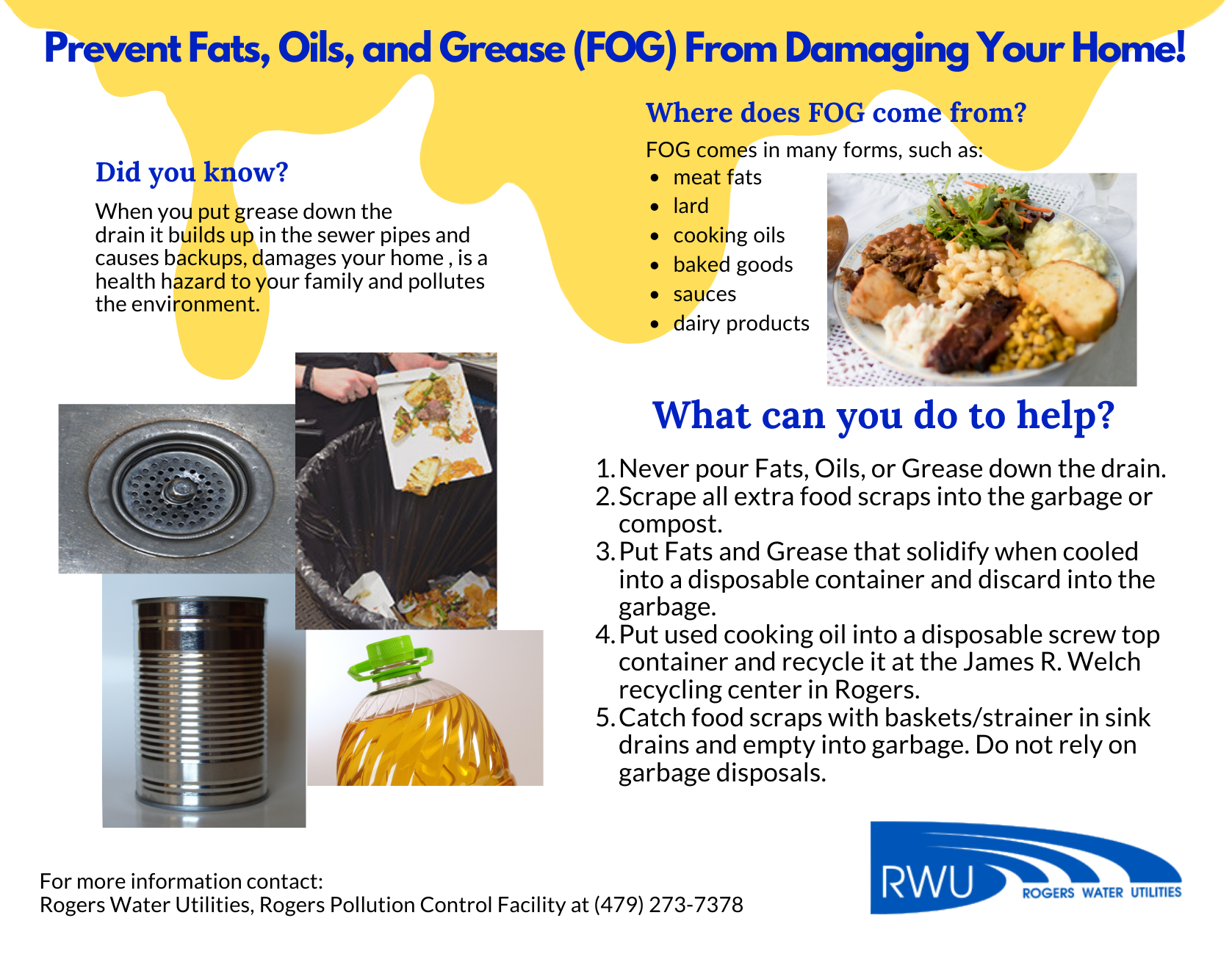Tips to Protect Your Water System From Cold Weather
Recent days have reminded us that winter is coming! When below freezing temperatures are sustained over a few days, water pipes and meters that are close to cold air may freeze. Rogers Water Utilities urges residents to take steps to prevent water pipes and meters from freezing. Frozen water meters and water pipes can stop water service and may be expensive to repair or replace. Property owners are responsible for protecting both water pipes and the water meter from damage. Preventing pipes and the meter from freezing is easier than trying to thaw them once they are frozen. As cold weather has now invaded the Rogers area, please help the utility in protecting your meters and pipes by doing the following.
Protect your meter
Please make sure all outdoor meter’s lids are not broken or missing, let the utility know if a replacement lid is needed. At the onset of cold weather, it is a good idea to protect your meter from freezing by covering the meter lid with some type of insulation. Unopen bags of mulch, potting soil makes good insulation or let any snow that falls cover the meter since snow acts as insulation. Remember that while Rogers Water Utilities (RWU) owns the water meter, the water customer is responsible for protecting it. If the water meter is broken because of freezing or other damage, RWU will charge the customer for the meter’s replacement.
Know the location of your property shut-off valve
In the event your property experiences a water leak, knowing the location of your shut-off valve could save you money on water and damage repairs. Make sure everyone in your home knows where the main water shut-off valve is located so you can turn off the water in an emergency. When you locate the valve, mark it with an identification tag. The valve is typically located where the water line enters the home. This could be in the basement, crawlspace, or utility closet. (Note: This is different from the shut-off valve in your meter box.)
Insulate water pipes in unheated areas
When temperatures drop below 32 degrees, exposed water pipes can quickly become an owner’s worst nightmare. To reduce the likelihood of freezing, protect exposed pipes by wrapping them with heat tape, pre-molded foam rubber sleeves or fiberglass insulation, available at hardware stores.
Disconnect and drain the garden hose connection
This will help prevent outside faucets and pipes from freezing, leaking, or breaking. Make sure to drain and store any garden hoses, too — they can freeze and split.
If you have pipes that are vulnerable to freezing
Allow a trickle of water to drip at night from an indoor faucet, preferably one along an exterior wall or farthest from where the water service connects with the main water line. During extremely cold periods, this trickle should be the size of a pencil point. Open cabinet doors to expose pipes to warmer room temperatures to help keep them from freezing.
Close garage doors completely since most water supply lines are in the garage
This adds an extra layer of protection to any water lines that may run through the garage area.
Winterize your irrigation system
To insulate your irrigation system, follow any manufacturer guidelines in preparing for winter. Some general steps that can be taken include:
- Always refer to t he manufacturer’s user manual.
- Shut off the water to the irrigation/sprinkler system.
- Turn off any timers.
- Drain the water.
- Insulate above-ground components.

